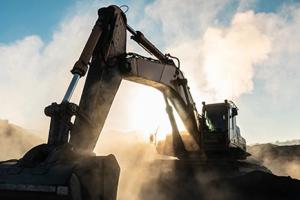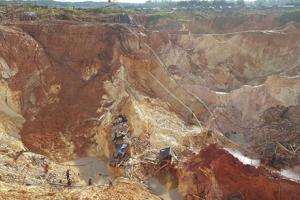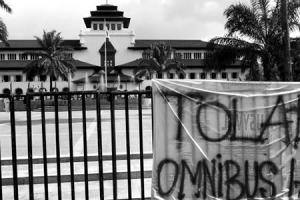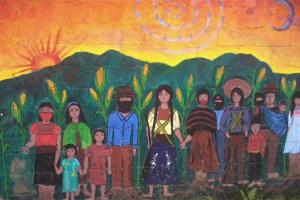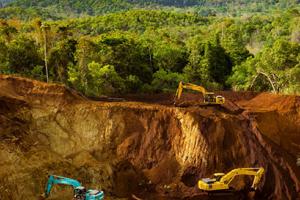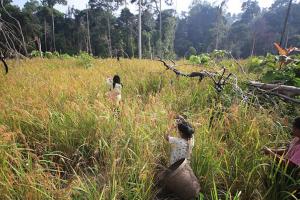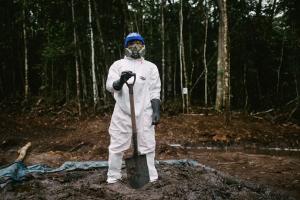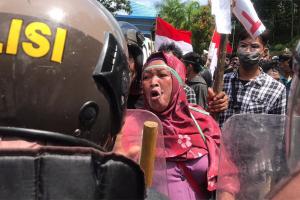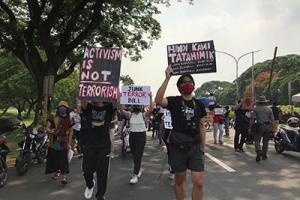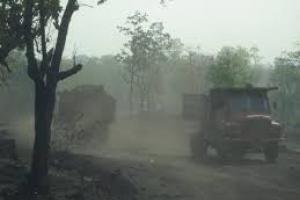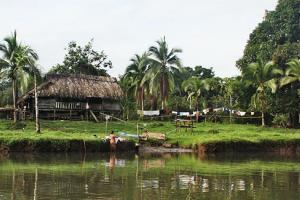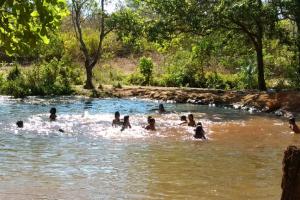Large-Scale Mining
Fueled by ever-increasing demand and the boom-and-bust cycles of global commodity markets, large-scale mining destroys forests and pollutes soil, air and water. Violent conflicts, sexual exploitation, criminalization and displacement of communities living in forests destroyed for mining, are examples of social impacts that are inherently linked with the mining industry.
The mining sector seeks to gain legitimacy and expand its frontiers of accumulation and territorial control. It does so using a discourse of sustainability and by investing in so-called “nature-based solutions.
The crisis in Venezuela from 2013 to 2021 has caused the collapse of a nation that was built around oil over the last 100 years. This has created a situation characterized by the emergence of mining-dominated predatory extractivism.
The government of Indonesia endorsed the criticized Omnibus Law by saying that it is “crucial to attract investment and ultimately create jobs.” The Law is a direct attack on the territories and communities resisting the increasing destruction that has been ongoing for decades in Indonesia. (Available in Indonesian).
WRM spoke with close allies from Brazil, Gabon, India, Mexico and Mozambique, to hear from them and learn about their understandings of development.
How does REDD+ fit into the development agenda in Indonesia? What are the actors involved in promoting REDD+ and with which interests? (Available in Indonesian).
The approval of a road construction inside the first Ecosystem Restoration Concession in Indonesia puts in evidence the inherent contradictions of such concessions. (Available in Indonesian)
Communities have a long history of confronting the disasters imposed by corporations and elites. For them, the “emergency” was a reality well before the Covid-19 pandemic. Yet, profit-seekers are abusing the situation to advance land grabs and roll back legislation.
This article highlights four trends that evidence how the mining industry continues to benefit from the Covid-19 pandemic while continuing its destruction throughout the archipelago. While corporate-oligarchs are hijacking democracy by perpetuating emergencies, a new dictatorship is being installed under the flag of mining capitalism. (Available in Indonesian).
Members of the WRM’s Advisory Committee were invited to contribute to this special Bulletin with reflections on the devastating situation of deepening injustices that forest communities and peasant families around the world are facing due to the Covid-19 pandemic.
The indigenous Ngäbe-Buglé people had to endure brutal repression to avoid the onslaught on their territories. They managed to get the Government to ban mining and hydroelectric dams in their territory. However, another intense onslaught came from conservationist NGOs.
This editorial aims to raise a high alert with regard to the corporate agendas that dominate international forest-related processes, which appear to be entering new phases. The decisions taken have very real impacts on forest communities.
